No products in the cart.
Luxury Replica Watches
What Unique Material Dial Does Fake Rolex Have?
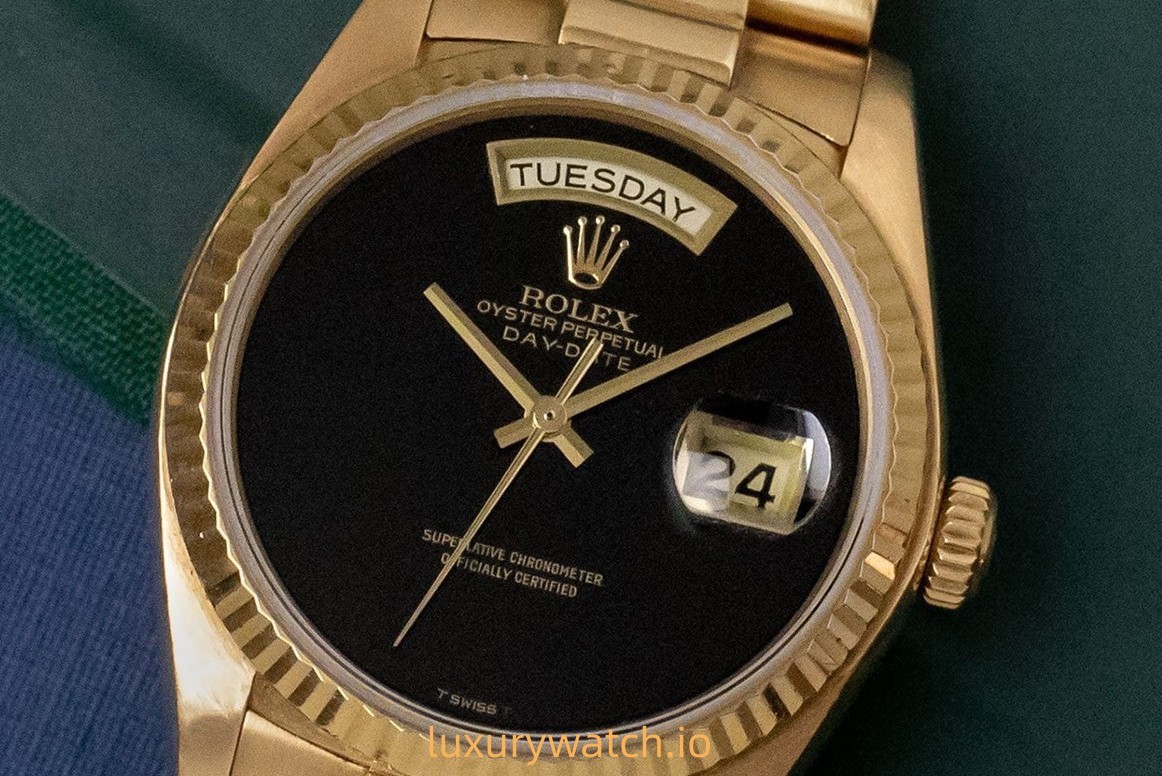
Rolex Day-Date 18038 ‘Onyx’
special stone
During the early 1960s, Piaget pioneered the use of gemstones and decorative stones as dials, which aroused popularity as soon as it was launched. Various watch brands also agreed after seeing it and then found their own gemstones and stone dials one after another. The unique stone plate is also the most diverse among all special plates of Rolex because of the highly expressive natural stones, such as turquoise, lapis lazuli, onyx, tiger’s eye, Opal, jade, malachite, etc. There are too many choices of materials with colorful colors.
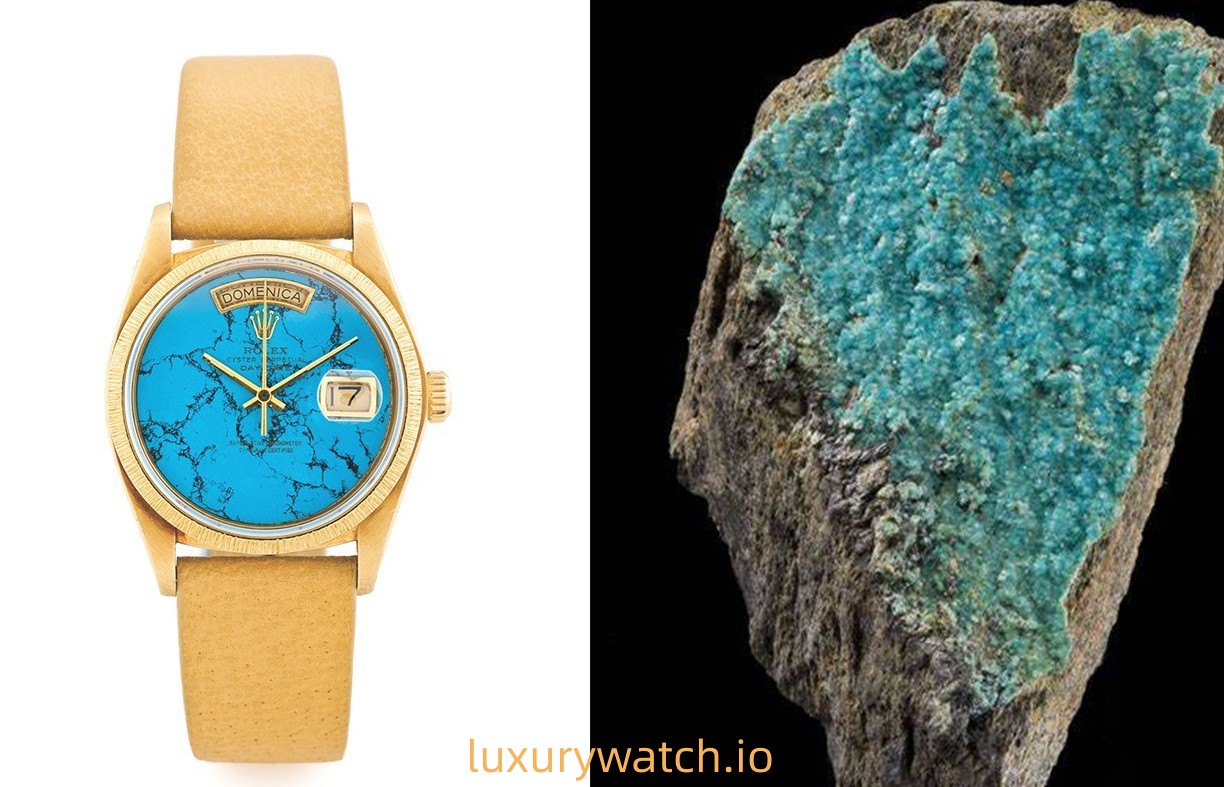
The eighties day-date turquoise disc
turquoise
Let’s look at the turquoise plate first, which is also the first reaction of most watch friends when they mention the fake Rolex stone material. Turquoise, classified as a semi-precious stone in the modern gem identification classification, is a water and copper aluminum phosphate mineral. The reserve is large, the color is elegant, and we have always used turquoise to decorate various utensils and accessories. This also makes watch friends feel more familiar with turquoise plates, and for a long time, many people think that the color of Tiffany blue is like turquoise.
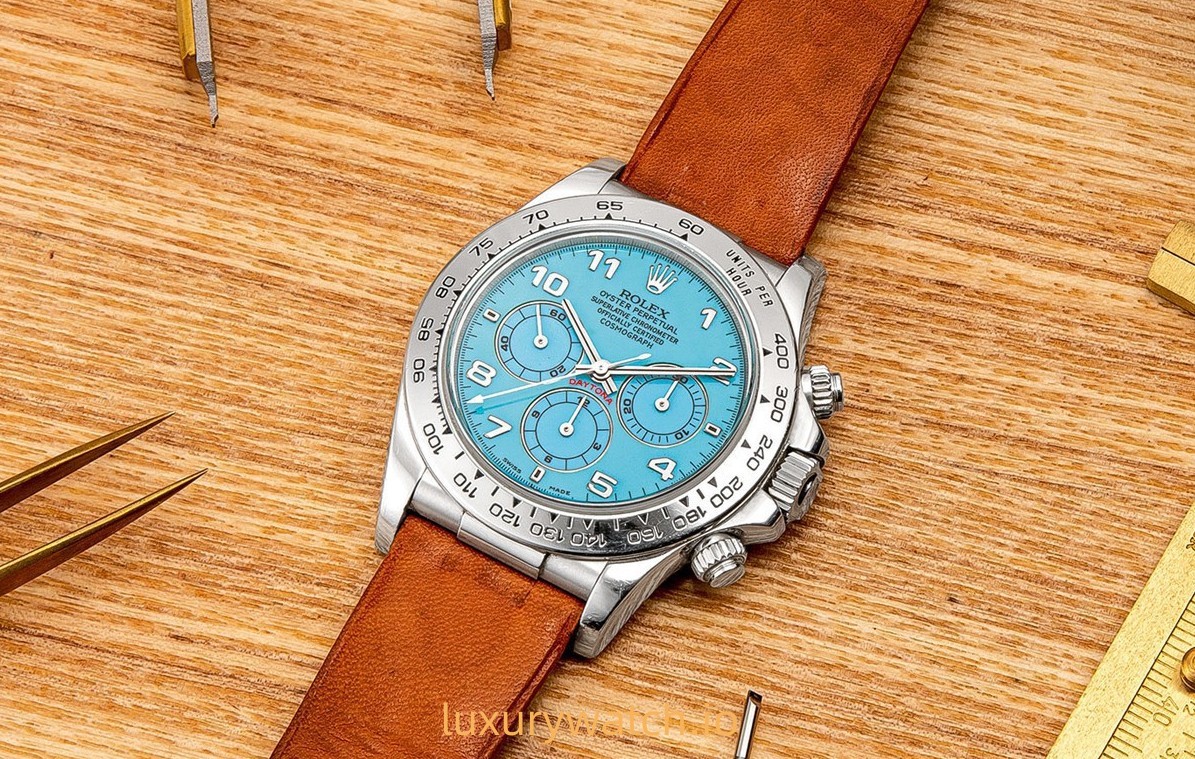
On April 22, 2021, Sotheby’s held a watch auction in Hong Kong. A Rolex “Zenith” Daytona Platinum Orphan Watch with Turquoise Platinum was sold for 24.375 million Hong Kong dollars (including commission), the highest price then. The second most expensive modern Rolex wristwatch ever sold at auction.
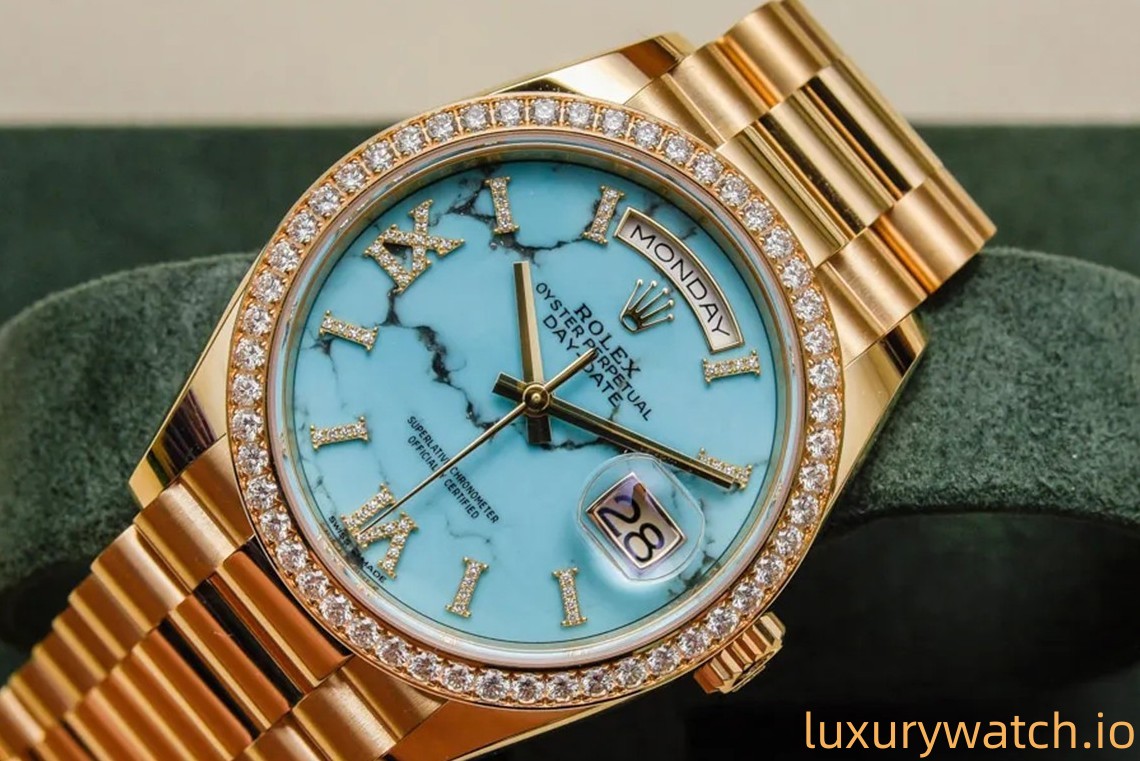
Rolex day-date type m128238-0071
Rolex has made turquoise discs for a long time, and at the Basel Watch Fair in 2019, it introduced the choice of turquoise discs for the day-date type with Roman diamond engravings. Generally speaking, besides looking at the turquoise porcelain and transparent color, you must also look at the turquoise iron wire. However, it can only be traditionally treated for some unique stone dials because each is unique. To distinguish the value from the perspective of stone materials, take m128238-0071 as an example; there is no iron wire to give people a perfect look, but if there is an artistic iron wire, it will not appear disturbing and damage the disk surface, which is another kind of natural beauty.
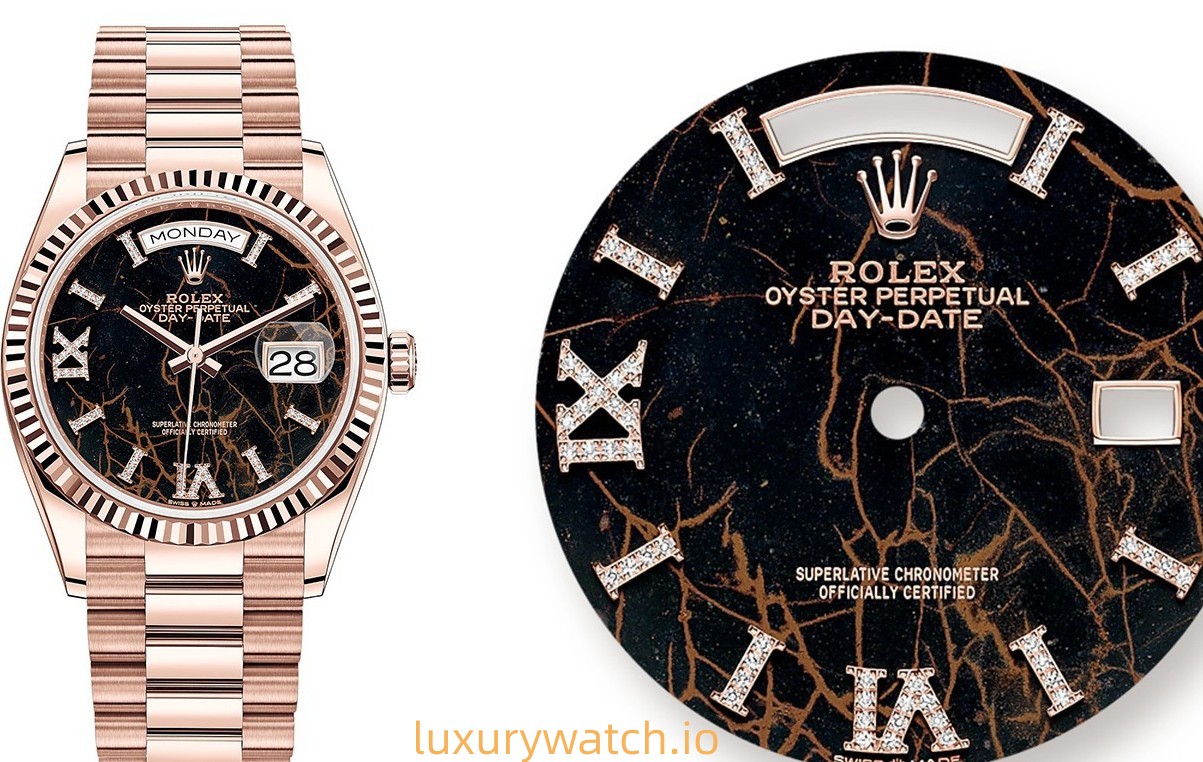
Hematite Quartz
At the Shanghai Watch and Miracle Watch Fair, Rolex once again provided the choice of hematite quartz disc for the week’s calendar. Hematite quartz is not precious; it is ore, but Rolex gave this texture section and matched it with an Everose gold watch. The shell is beautifully made and good-looking among all the stone trays.
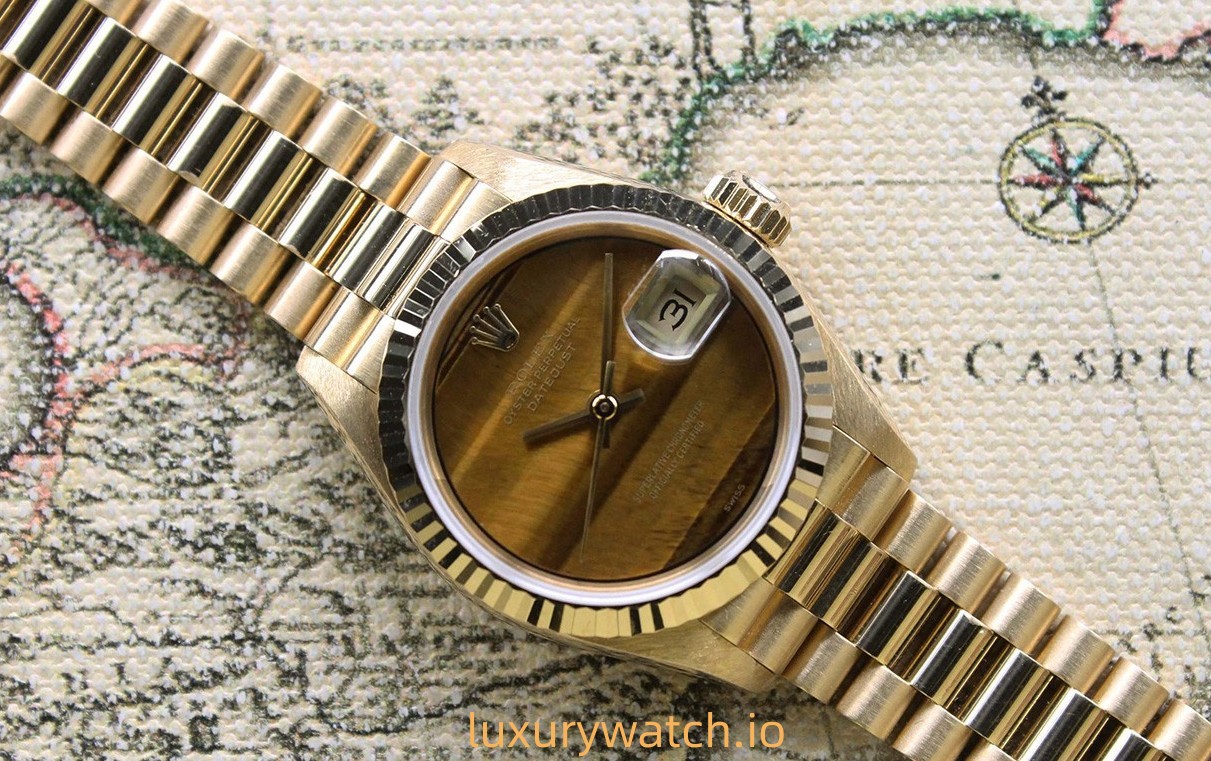
1988 Rolex Datejust 69178 Tiger Eye Stone Disk
tiger eye stone
Tiger eye stone is named for its yellow-brown background color, plus the soft light inside the gemstone, which looks like a tiger’s eye after being made into a curved surface. It is often said in the market that tiger eye stone is good luck. Symbol, so this gem is quite popular. Most tiger eye stone week calendar watches were launched in the 1970s and 1980s. Rolex made the gem patches horizontal and straight, with yellow and brown layers.
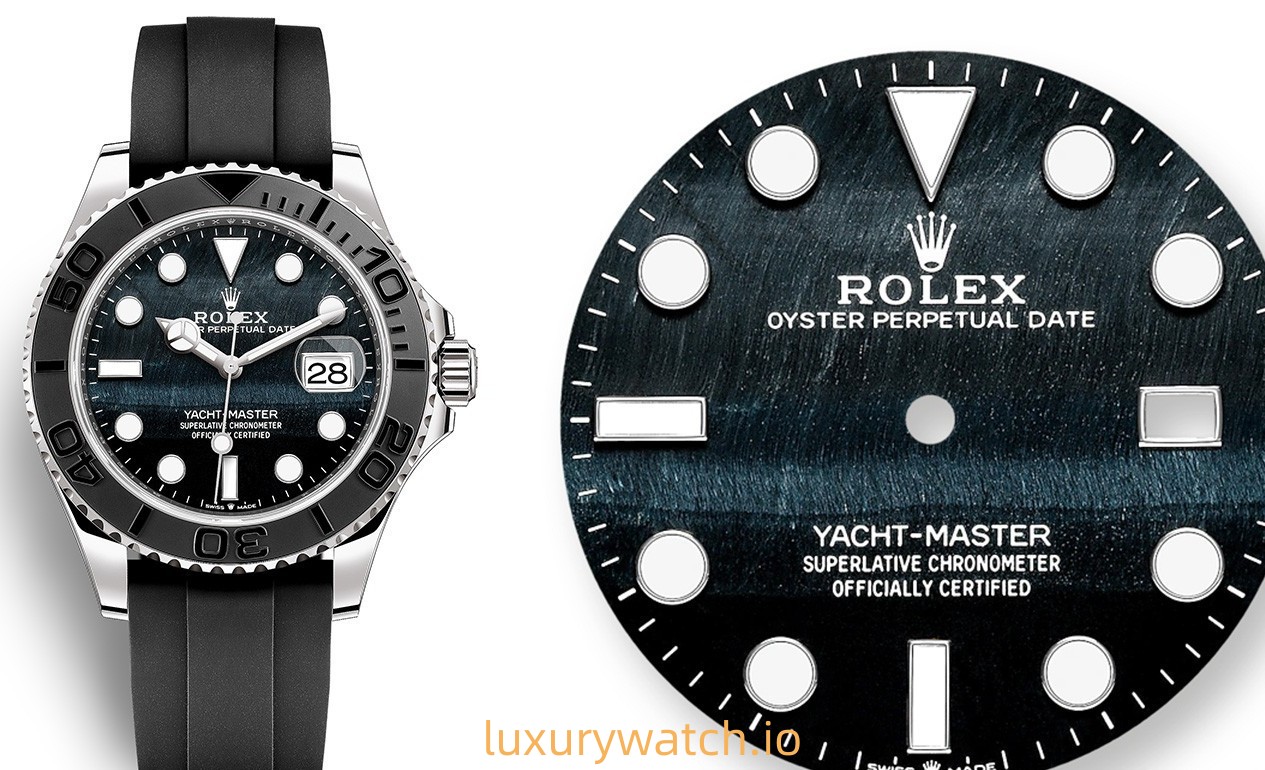
Rolex Yacht-Master series m226659-0004
eagle eye stone
In Watches and Miracles, Rolex added Eagle Eye to Yacht-Master. Eagle Eye is the unfinished process of tiger eye silicification. The blue variant produced has no noticeable difference except for the blue tone. However, Rolex used a platinum case for this yacht to match eagle eye stones instead of gold and rose gold, often used on gem faces.
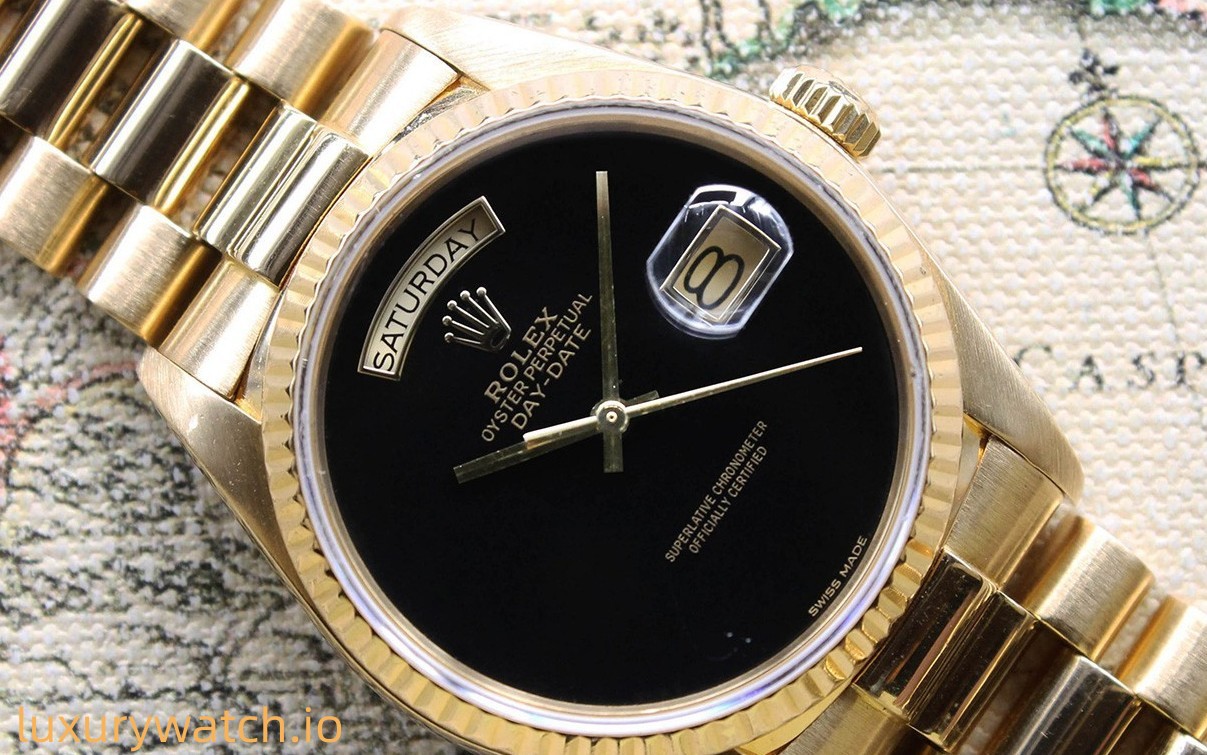
1986 Rolex Day-Date 18038 ‘Onyx.’
Black Onyx
Onyx is the English word for onyx, which has layers of different colors, but now onyx is more commonly used to refer to pure black agate. I also chatted with you at the beginning. My favorite Rolex special stone plate is the pure black and most refined wordless book, the black agate without time scale. Black agate discs are still relatively standard in the watch field. Many brands have taken fancy to its dark texture and feel it is very suitable for the stability and elegance of formal best replica watches.
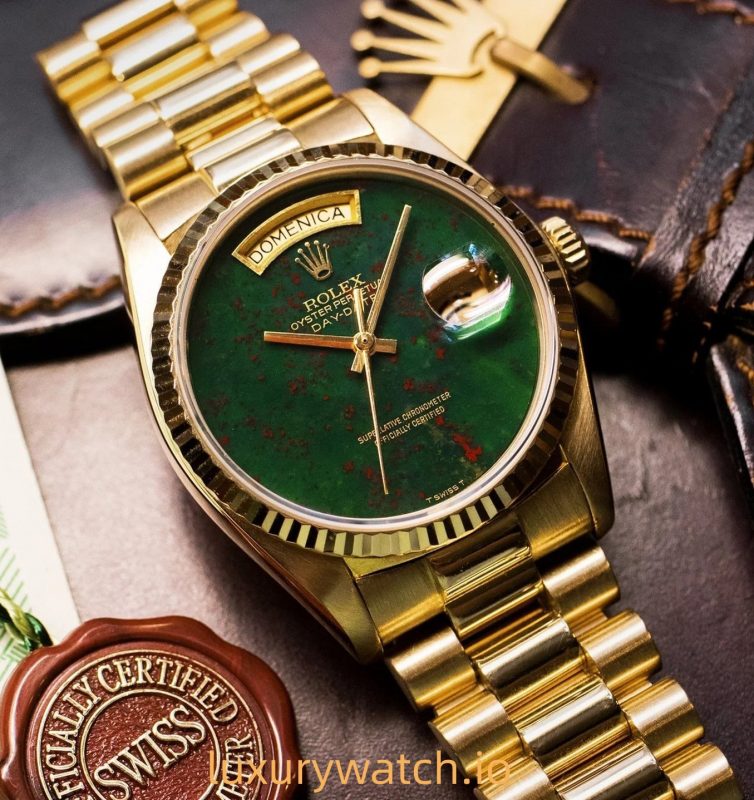
1979 Rolex Day-Date 18038 bloodstone
bloodstone
Bloodstone is a very representative stone dial in Rolex, but it is rare and much rarer than the malachite dial, which is also a green stone. Bloodstone is also called blood chalcedony, dark green chalcedony will be accompanied by blood-like red spots. Some bloodstone disks are very red, and they are not too spotted, as if the dark green stone is stained with blood, so the bloodstone disk is also called “Christ’s blood” disk by foreign collectors and watch lovers. Nickname.
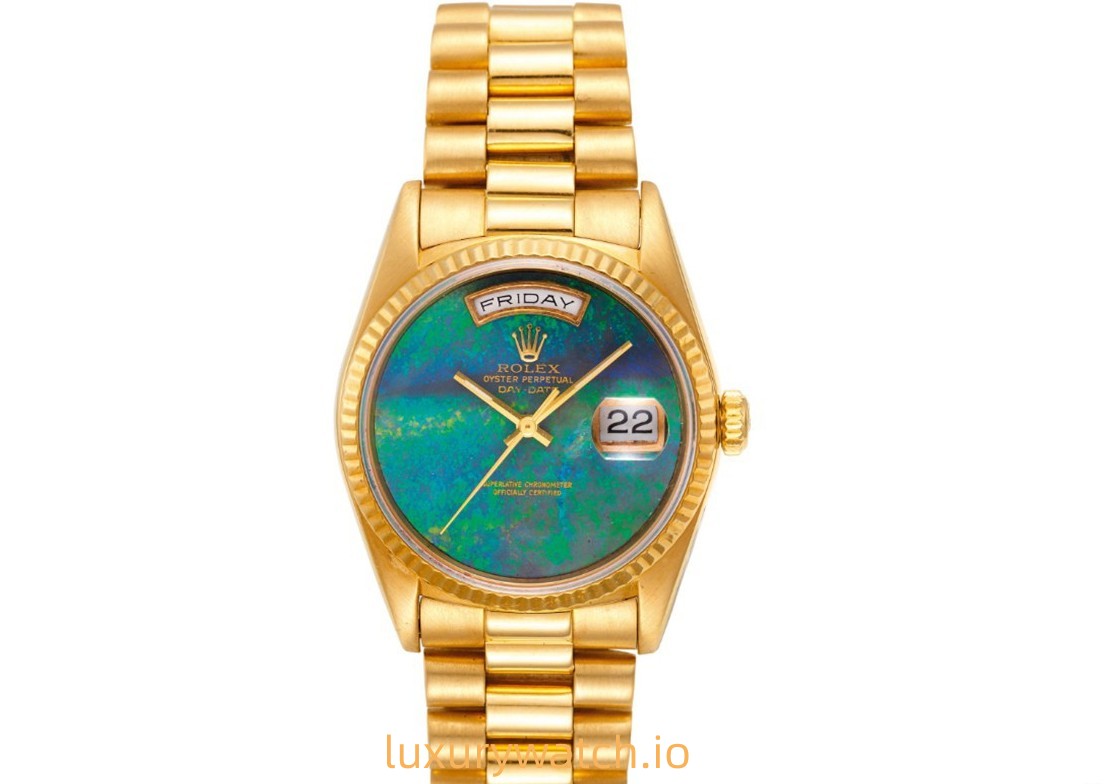
A 1990 Day-Date 18238 Opal Plate auctioned by Christie’s in 2019
Opal
Opal, Opal, is known as one of the most beautiful and precious gemstones, and its primary origin is Australia. The word Opal comes from Latin, and its original meaning is to gather the beauty of all gemstones into one. The ancient Roman natural scientist Pliny once commented, “On a piece of opal stone, you can see the flame of ruby, the color spots like amethyst, and the green sea like emerald, which are colorful, integrated, and beautiful.” Rolex is also the most colorful gemstone dial, and the color-changing effect is like a palette.
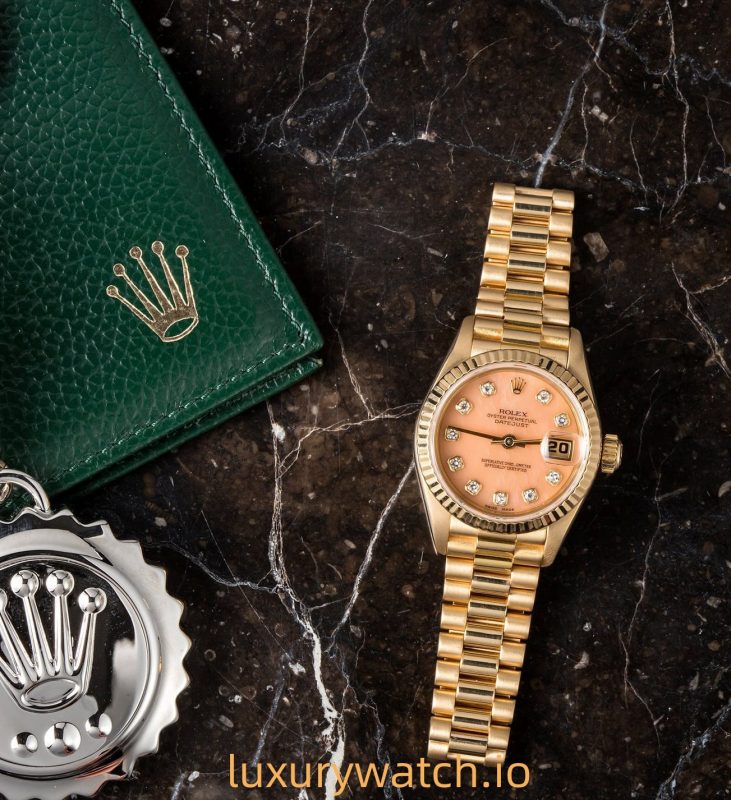
Women’s Journal type 69178 coral disk in the 90s
organic gemstones, fossils
New products of unique stones have been launched in recent years. Although the quantity is similar to before, considering the circulation of middle-aged styles in the market, you still have the opportunity to see special stone plates. Next, we will introduce Yes; due to various reasons, such as multiple protection laws, organic gemstones, and fossil discs can only be seen at major auction houses, and according to different rules and regulations related to endangered species in various places, so for cousins Said, I think it’s good to appreciate and understand.
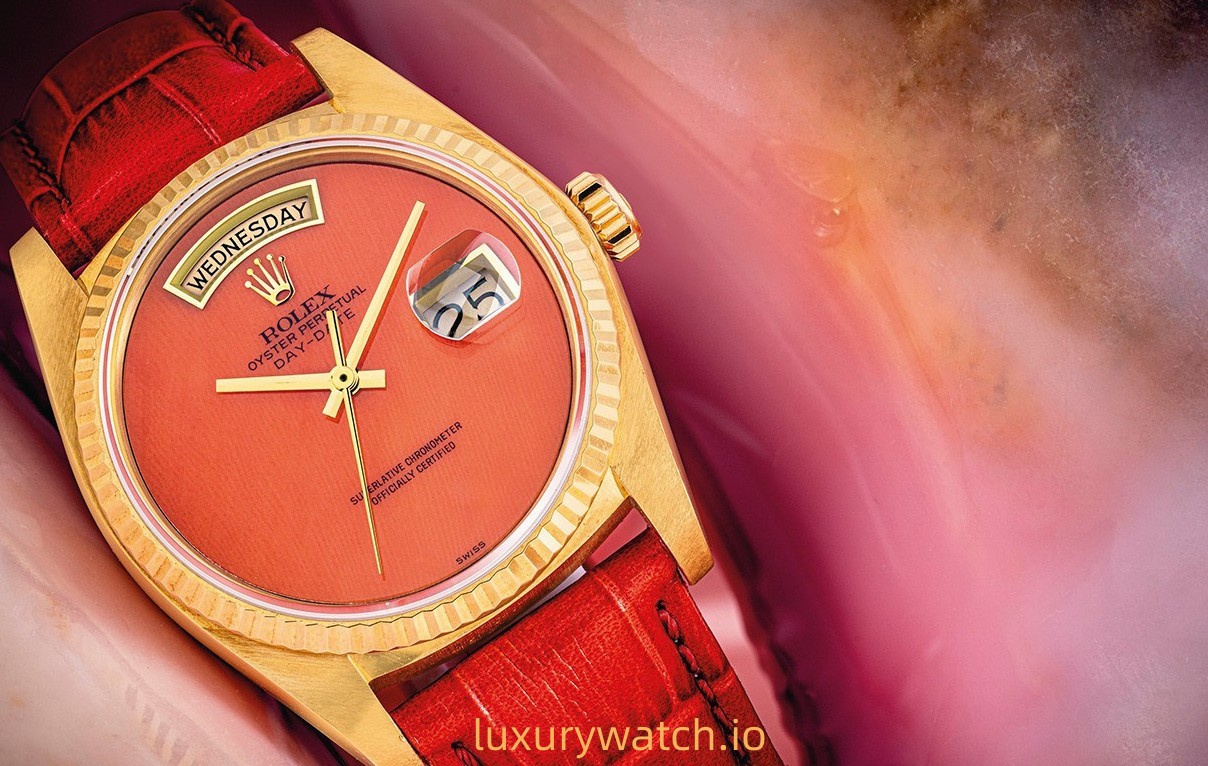
1982 Week-Journal 18038 Coral Coral Plate Auctioned by Christie’s in 2020
coral
Rolex launched some coral discs in the last century, including blue coral and the more familiar red coral. Coral, pearls, and beeswax are the three primary organic gemstones because coral is the shell secreted by coral polyps. The main ingredient is calcium carbonate, so the texture is brittle and loose, and even fewer corals can reach gem-level processing density. It is also challenging for Rolex to cut them into dial patches, so the output of this kind of dial has always been low. Not high, very precious, and because mining coral will destroy marine ecology, after coral is listed as a protected organism, Rolex no longer makes this kind of disk.
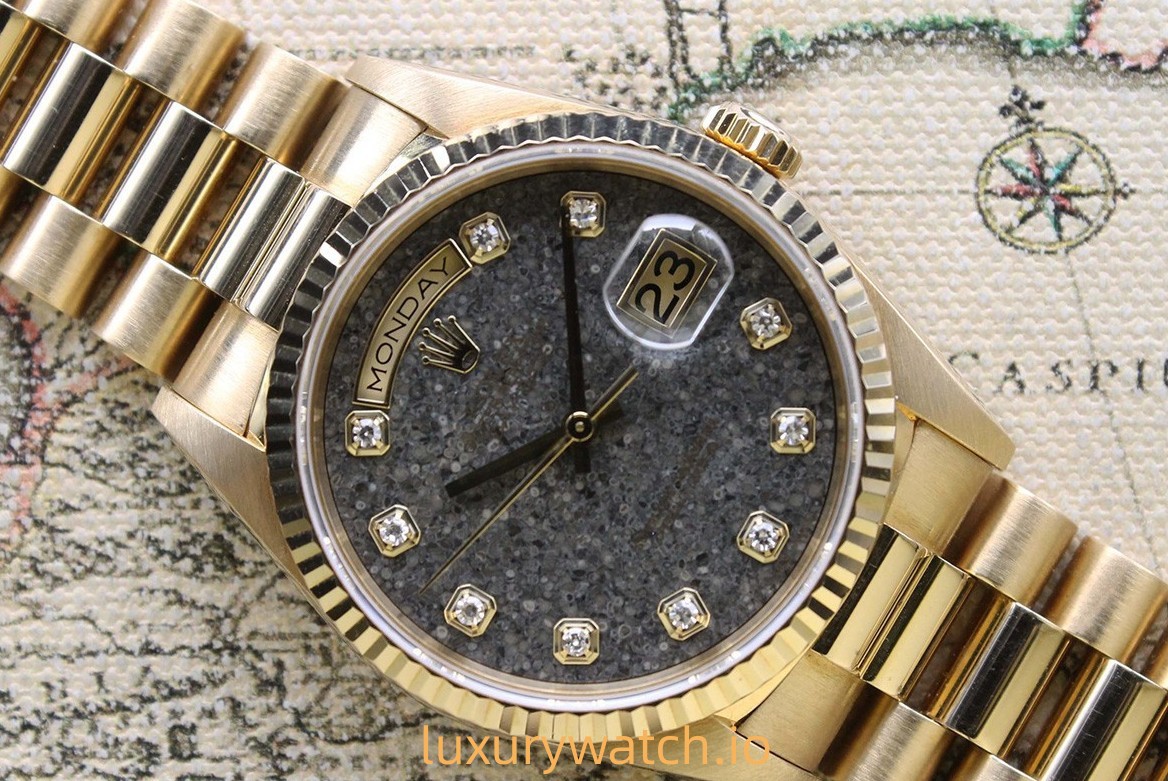
1998 Rolex Day-Date 18238 Fossil Disk Jurassic Park’ Jurassic Park’
fossil
Rolex is not satisfied with them after playing with stone and organic gemstones. In the last century, it tried to use fossils as slices as dials. I don’t know much about it and fear secrets, so I can’t accept this fossil disk.

1990 Rolex Day-Date 18208 Ammonite Fossil Disc ‘Ammonite’
Every time I look at the ammonite disk, it reminds me of Alien, and the fossil disk above it has always been called Jurassic Park abroad. Although Rolex does not use fossils now, some brands still use them. For example, Louis Moinet will use 150 million years ago Jurassic dinosaurs and Diplodocus bone fossil slices to make dials.
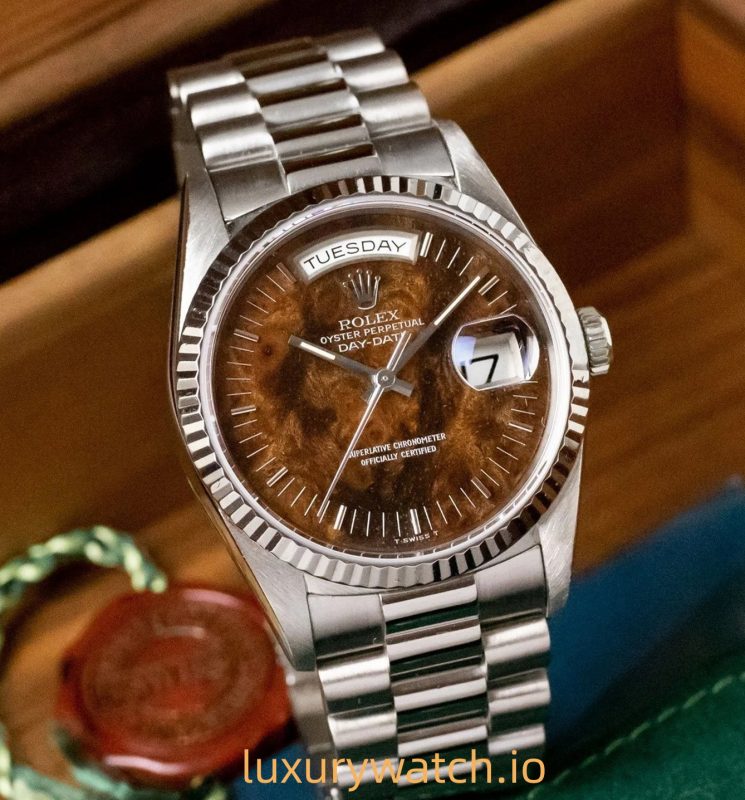
1991 Rolex Day-Date 18K Platinum 18239 Wood Plate
This wood is Burl Wood, which is also Burl wood. The disc surface made of this burl will not have regular growth rings but will form a unique texture.
wood
After Rolex ran out of animal fossils, it also used wood fossils. The wood texture may be right. Later, it also directly used wood as the surface, such as red shirts, mahogany, oak, walnut, briar, and other woods—the natural texture of the wood and the leading tone of brown match perfectly with the gold case. For example, a lot of wood is used in a luxury car, which can enhance the sense of luxury. Wooden dials, not limited to day-date models, were also used in early Cellini models.
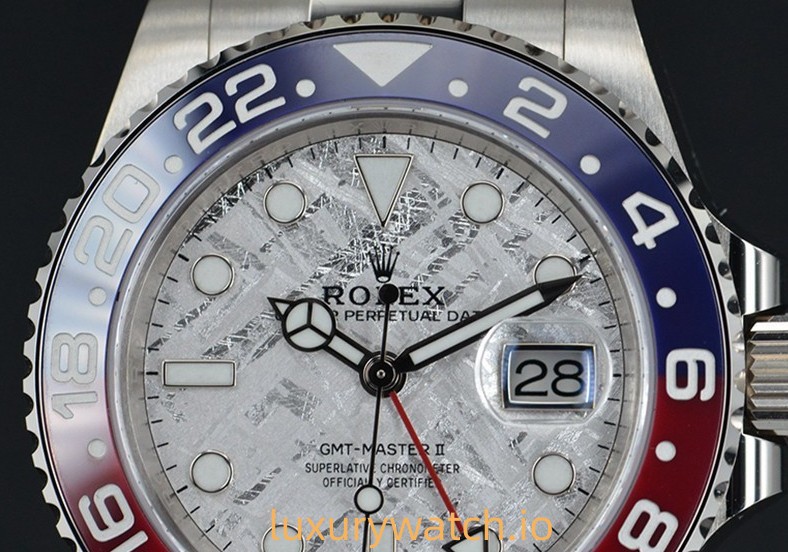
Greenwich Mean II, series meteorite disk, launched in 2019
meteorite
Rolex will use meteorite as the dial material, such as the week calendar, log type, Greenwich GMT, and PEARLMASTER. The meteorite disk surface of Rolex is taken from a famous Gibeon meteorite, also known as the Hoba meteorite, which was found in Africa in 1838. The discovery of the Nabimian desert is also the heaviest meteorite found in the world so far. It is rich in iron and a little nickel. After Rolex gets the meteorite, it will process slices and do chemical treatment to show the beauty of interlaced textures in its internal structure to the greatest extent; each has a unique Wiedemann angle. Pattern.
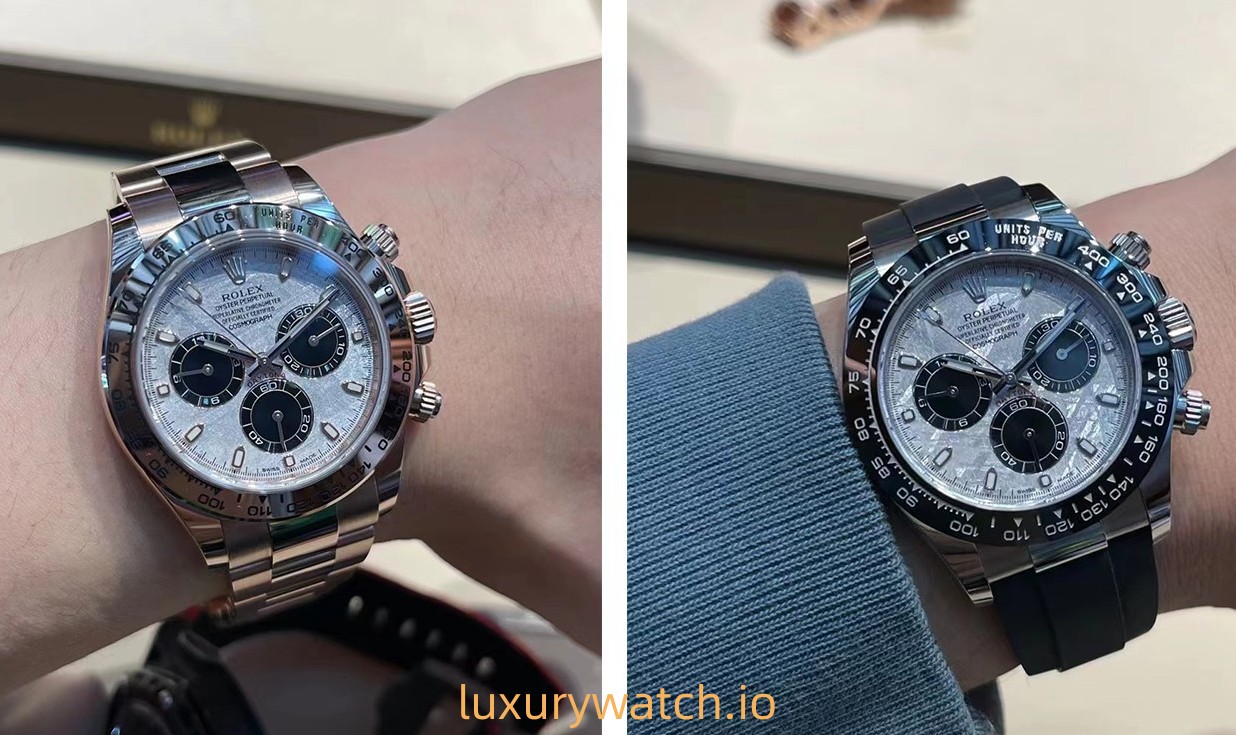
Left: M116505-0014
Right: M116519LN-0038
And the meteorite disc surface is not like the one introduced to you above. It will not come out at any time. It is still in use today. For example, last year, a new meteorite Di was launched at the watch exhibition. I also tried it on and tried it. It is full of eternal roses. The pattern of the gold one could be more precise, and the angle needs to be aligned with the light. The effect is like a layer of frost on the disk’s surface, while the platinum tape has a particularly eye-catching meteorite texture.
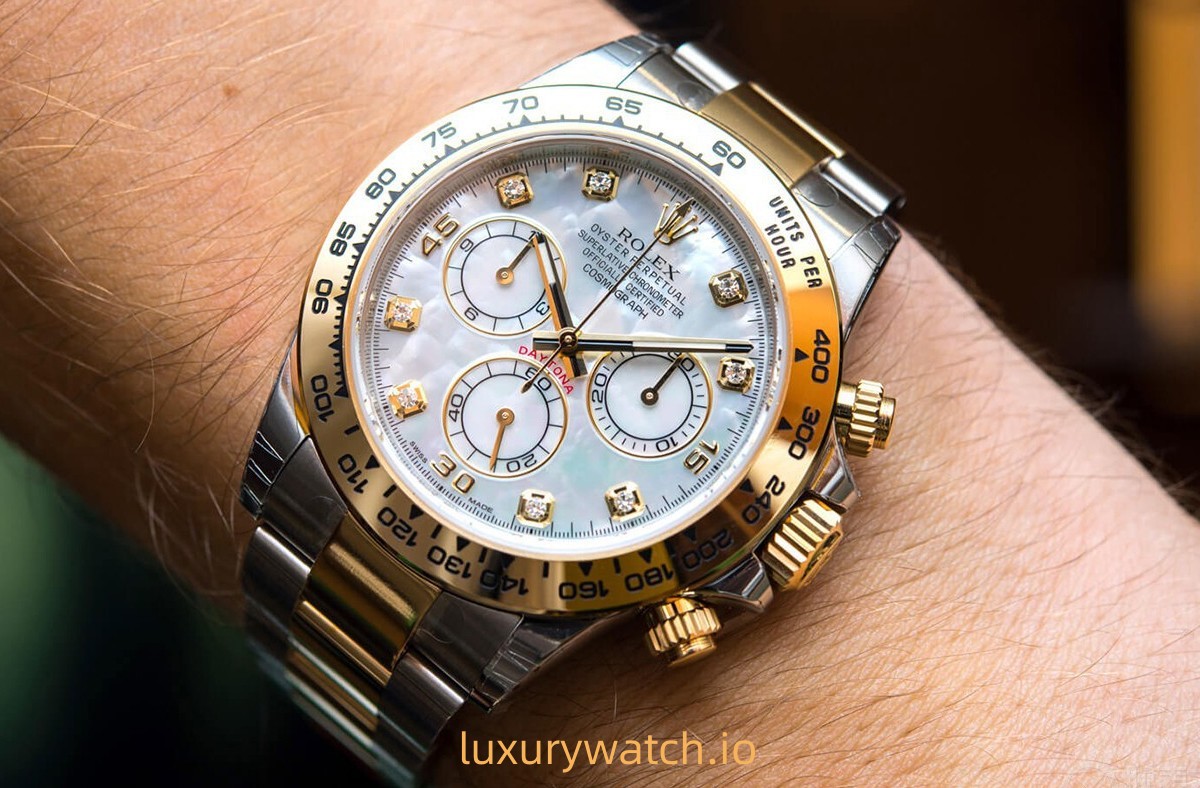
White Fritillaria Jindi m116503-0007
Fritillaria
Mother-of-pearl disk, or mother-of-pearl, these two names are just different; it doesn’t matter; they both refer to the complex inner layer of shellfish, which is mainly composed of overlapping calcium carbonate deposits. Natural mother-of-pearl will vary depending on the growth environment and material. Erosion conditions and details such as color and texture are different, so each mother-of-pearl disk is unique. Its most prominent feature is its pearl-like luster and luster.
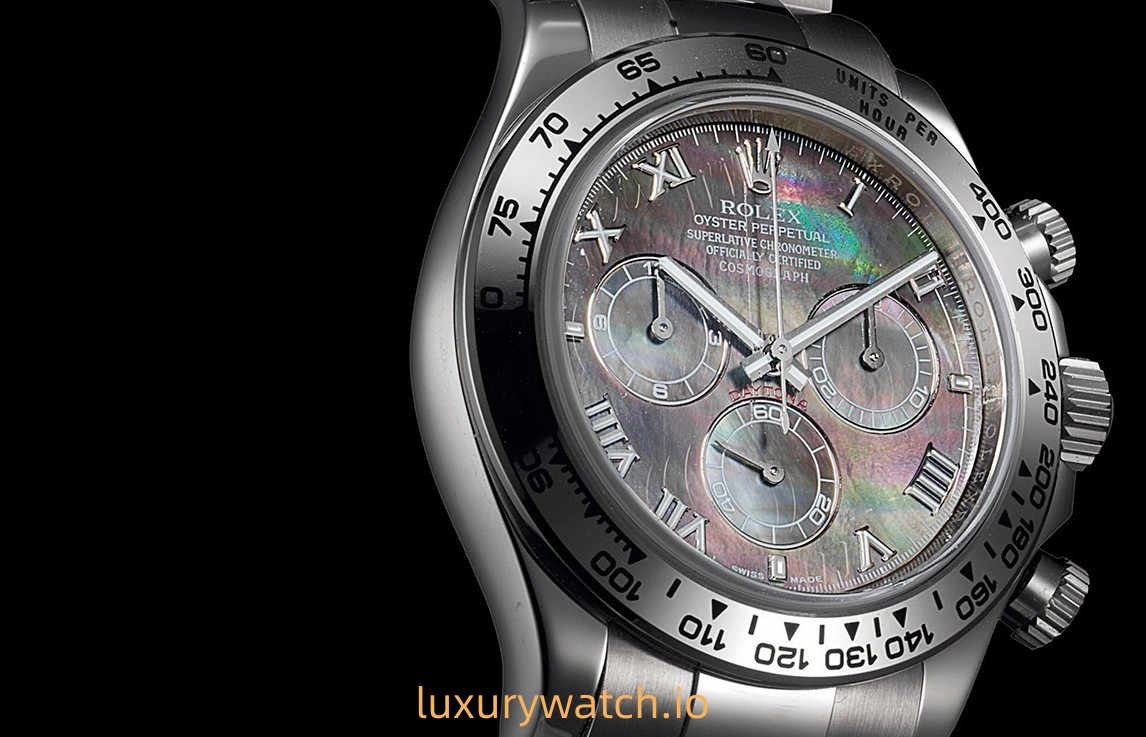
Christie’s 2006 18K Platinum Bemudi 116509-MOP auctioned in 2013 sold for 187,500
In the traditional sense, mother-of-pearl is more suitable for women’s watches, but the strength of Rolex is that it perfectly integrates this pearl-like material with men’s watches. Mother-of-pearl noodles are prevalent on the Internet.
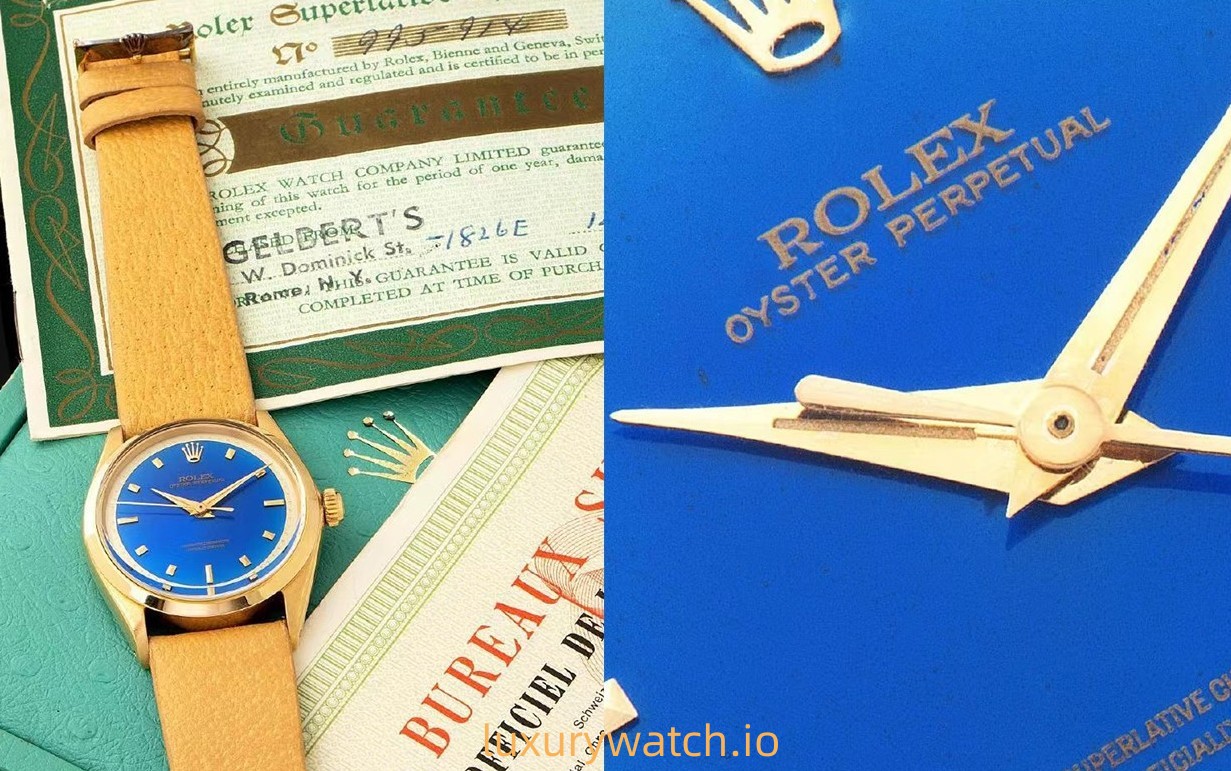
In 1963, Rolex adopted the blue enamel plate Ref.1002 made by the Stern family.
Enamel
Rolex used enamel plates in the last century, but the enamel plate was not made by Rolex itself but was supplied by the Stern family, Patek Philippe’s owner. Rolex, except for DD118348 green enamel pavé diamonds, is generally only used on jewelry style scales or Cellini’s moon phase window; there is no pure enamel plate.
diamond studded
Finally, let’s look at a Rolex pavé diamond disk called a starry sky disk by watch friends. Rolex is notorious for its high requirements in making watches, so it is even more strict about setting jewelry and diamonds. The diamonds used by Rolex only use the closest colorless diamonds, and they are the highest level of the color table of the Gemological Institute of America, that is, Grade D. to G grade. The surface of the star-studded disc is prong setting, which is also the most classic and everyday diamond inlay process. Its most significant advantage is that it can highlight the brilliance of diamonds. This process is also done by hand by the brand’s experienced inlays, embedding the diamonds in the best position individually.
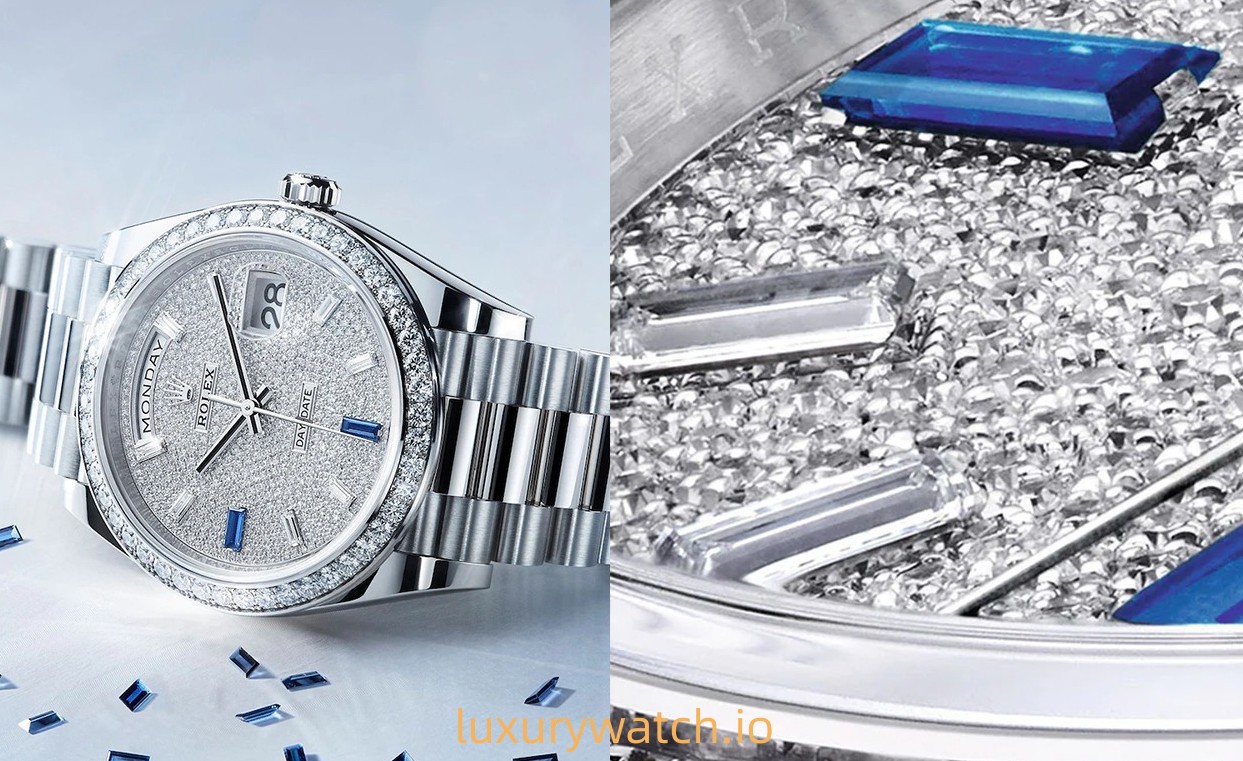
Rolex day-date series m228349rbr-0036
The unique dials made by Rolex are distinguished by the materials listed above, such as stone and wood. Because Rolex uses them often, I pick out some representative ones to share. According to the introduction, in the production process of these special disks, stones, organic gemstones, meteorites, shells, and wood are sliced first and attached to the copper base. The beauty of the design of each watch is also unique because of its natural formation, which is why these particular materials are so popular among watch lovers.
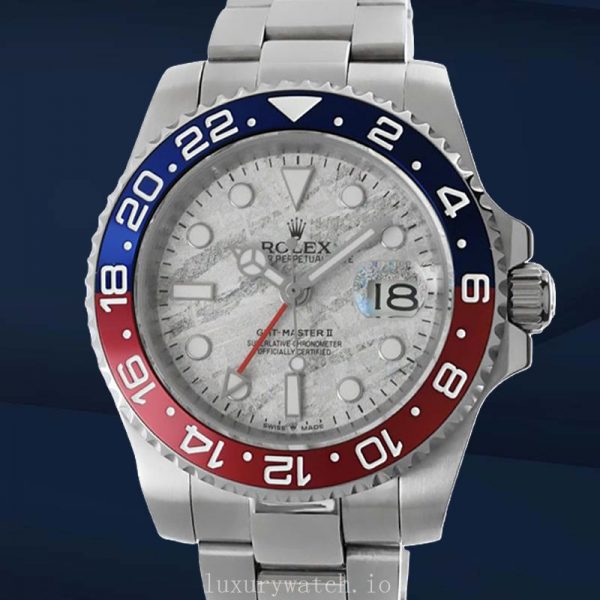
Band Color: Silver-tone
Model: m126719blro-0002
Case Color: Silver-tone
Gender: Men’s
Brand: Rolex
Band Length: 18cm
Band Width: 20mm
Series: Gmt Master Ii
Dial Color: Meteorite Dial

